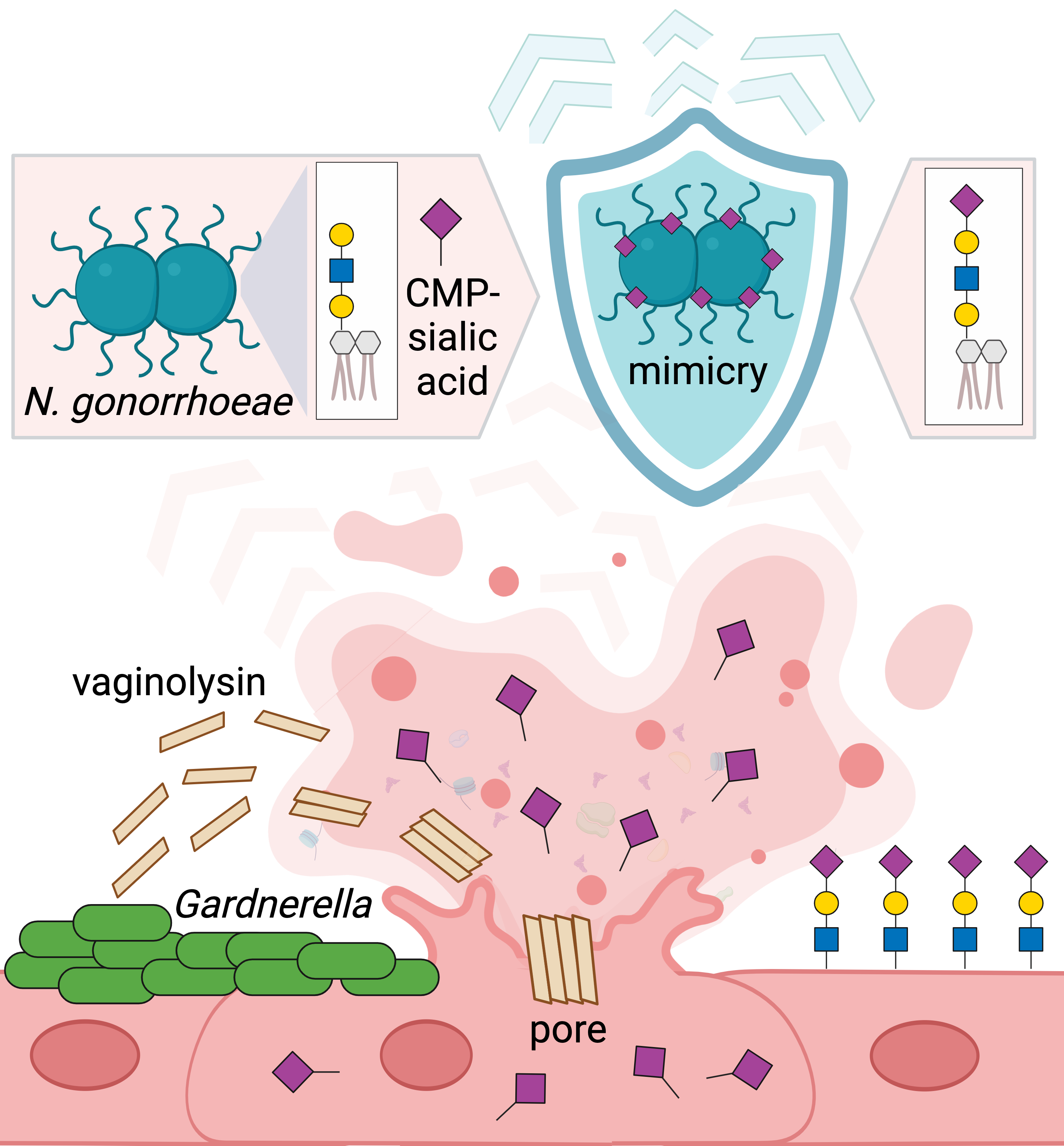Amanda Lewis, PhD and her lab study how complex sugars bridge the interfaces between vaginal bacteria and the human host
Situated within the Glycobiology Research and Training Center (GRTC) of UC San Diego is the Lewis Lab led by Amanda 'Mandy' Lewis, PhD. Dr. Lewis serves as Co-Director of GRTC, Director of the UC Glycosciences Consortium for Women's Health, and a Professor of Obstetrics, Gynecology, and Reproductive Sciences. GRTC embodies the advancement of research and training for the next generation of researchers in the glycosciences and biomedical sciences. Contributions from the Lewis Lab have unraveled the mysteries of the vaginal microbiome in fascinating studies and their experimental models investigate vaginal bacteria colonization, pathophysiology, and human and animal host-microbe interactions. Dr. Lewis is an influential keynote lecturer whose lab explores sexual health, women's health, and the roles played by glycans (complex carbohydrates) between the host and bacteria in health and disease particularly in the female genitourinary systems.
Lewis Lab Team Members
Discover fascinating recent research gems: Lewis Lab Publications
Toxin Produced by Common Vaginal Bacterium facilitates Gonorrhea’s Carbohydrate Cloaking Mechanism
The human vagina is home to millions of bacteria, collectively referred to as the ‘vaginal microbiome.’ Most of the time, lactic acid-producing bacteria (called lactobacilli) are found in large numbers, contributing to an acidic pH that prevents potential pathogens from becoming too numerous. However, nearly one third of women have a condition known as bacterial vaginosis (BV), in which lactobacilli are less abundant and other types of bacteria overgrow. BV has been linked with negative health outcomes such as pregnancy complications and higher risks of sexually transmitted infections, including gonorrhea. 
Lewis Lab Research at UC San Diego
More than 80 million new cases of gonorrhea occur per year worldwide. The bacterium that causes gonorrhea, Neisseria gonorrhoeae, is becoming increasingly antibiotic-resistant, and there is currently no vaccine available. Gonorrhea affects both men and women, but in women it can cause especially severe problems like infertility, ectopic pregnancy, and even bloodstream infection. Newborns can also be infected. There are well established clinical associations between gonorrhea and BV. However, the intimate molecular details of gonorrhea’s relationships with members of the human vaginal microbiome, or how they may contribute to health outcomes have not been extensively studied.
Research at University of California San Diego School of Medicine published in the Journal of Infectious Diseases sheds new light on this question. Authors from the laboratory of Amanda Lewis, PhD, professor in the Department of Obstetrics, Gynecology, and Reproductive Sciences at UC San Diego School of Medicine, show that one of the most conspicuous microbiome members to overgrow in BV, Gardnerella, may be facilitating gonorrhea’s stealth escape from the immune system.
At the center of this story is a type of carbohydrate molecule called sialic acid, which is found on the surfaces of all human cells and acts as a “self” signal to the immune system, communicating that these cells should not be attacked.
“It is like all of your cells are wearing the same color jersey” said Sydney Morrill, PhD, first author of the study and UC San Diego postdoctoral researcher. “It indicates to your immune system that they are all on its team.”
Gonorrhea, however, is able to mimic this “self” signal by stealing the metabolically activated form of sialic acid (CMP-sialic acid) from host and display it prominently. This surface mimicry of host carbohydrates is known to foster gonorrhea infections by protecting the bacterium from immune attack.
Thank you, Dr. Lewis and Lab Team for your trailblazing science! Visit Lewis Lab for brilliant research updates.
